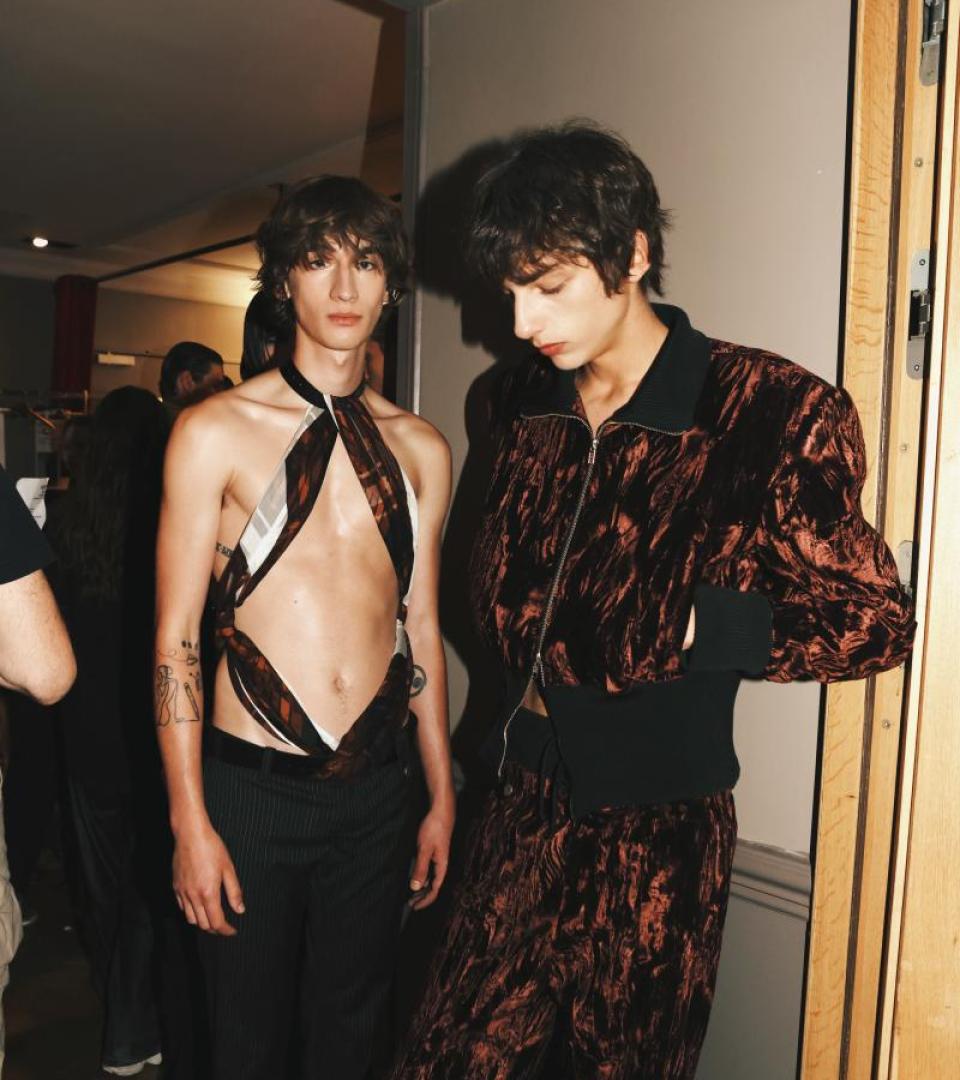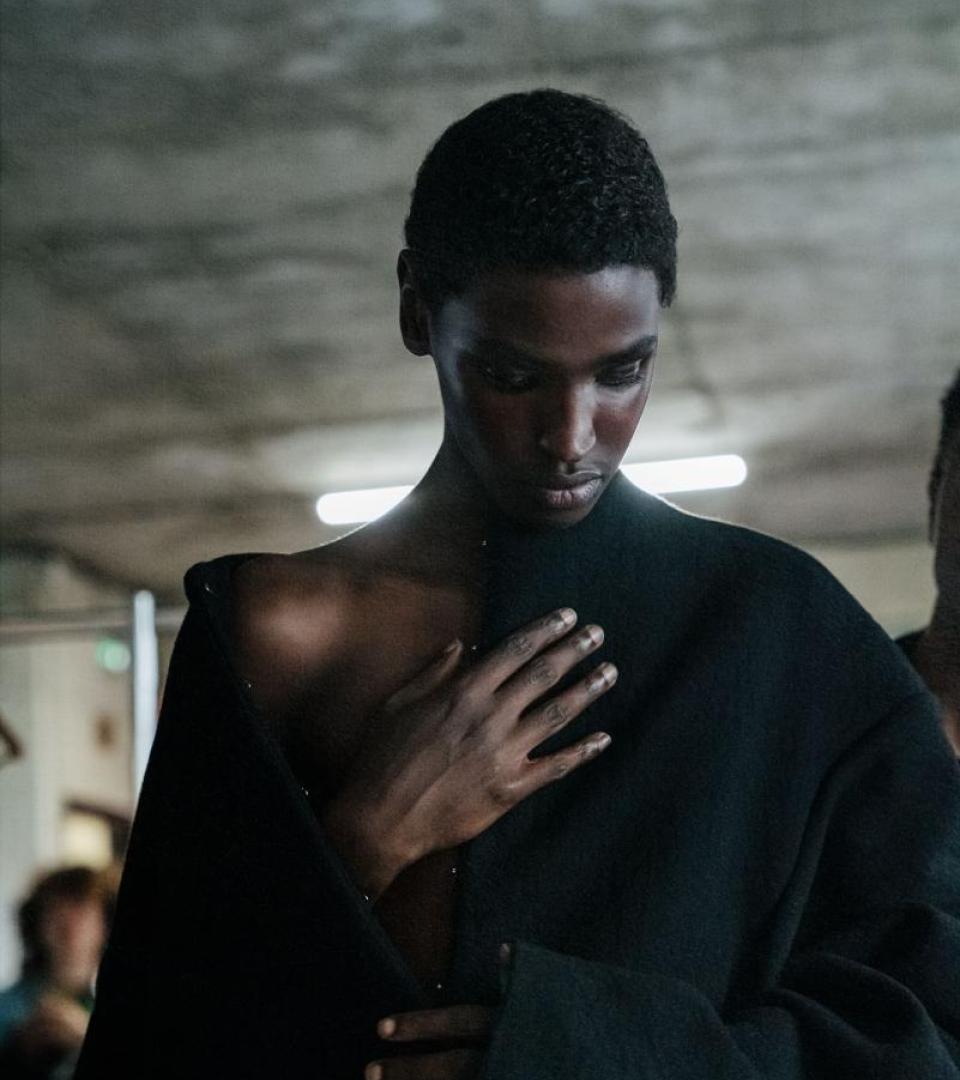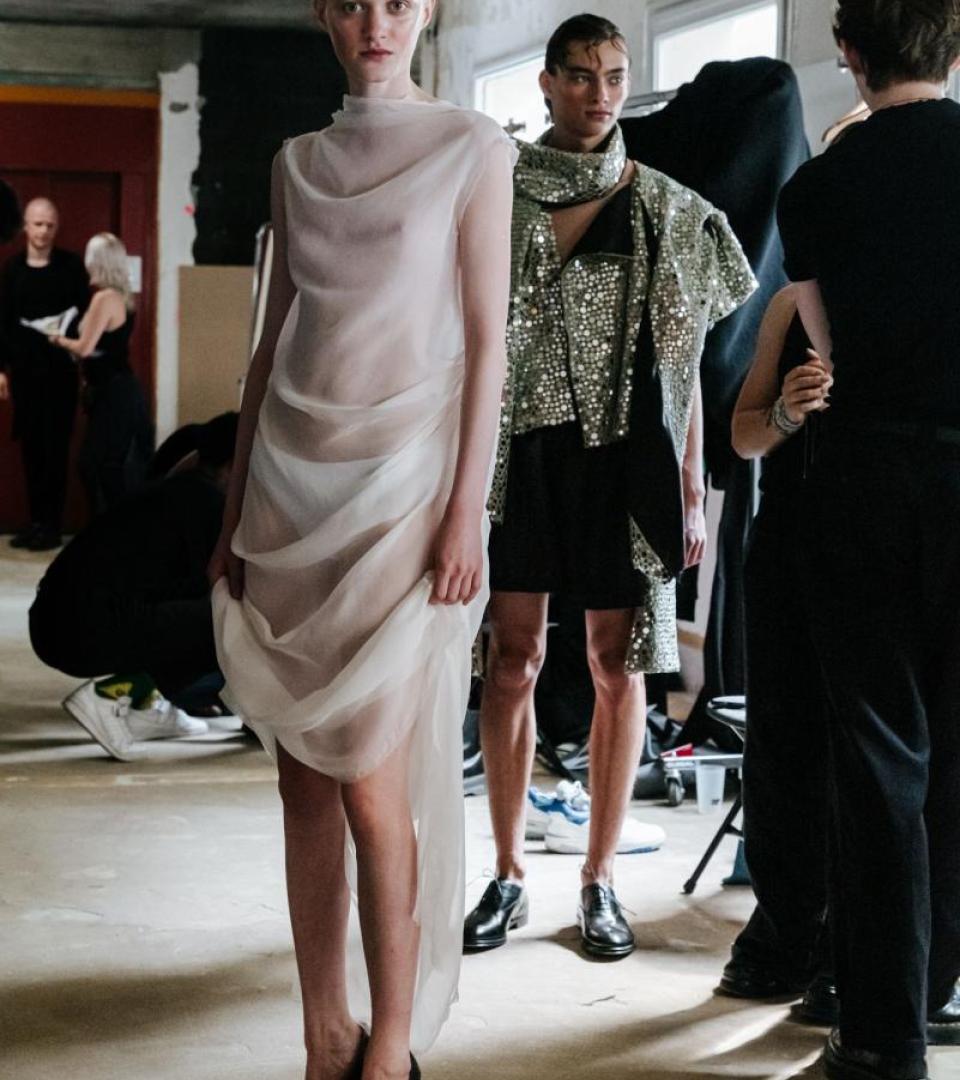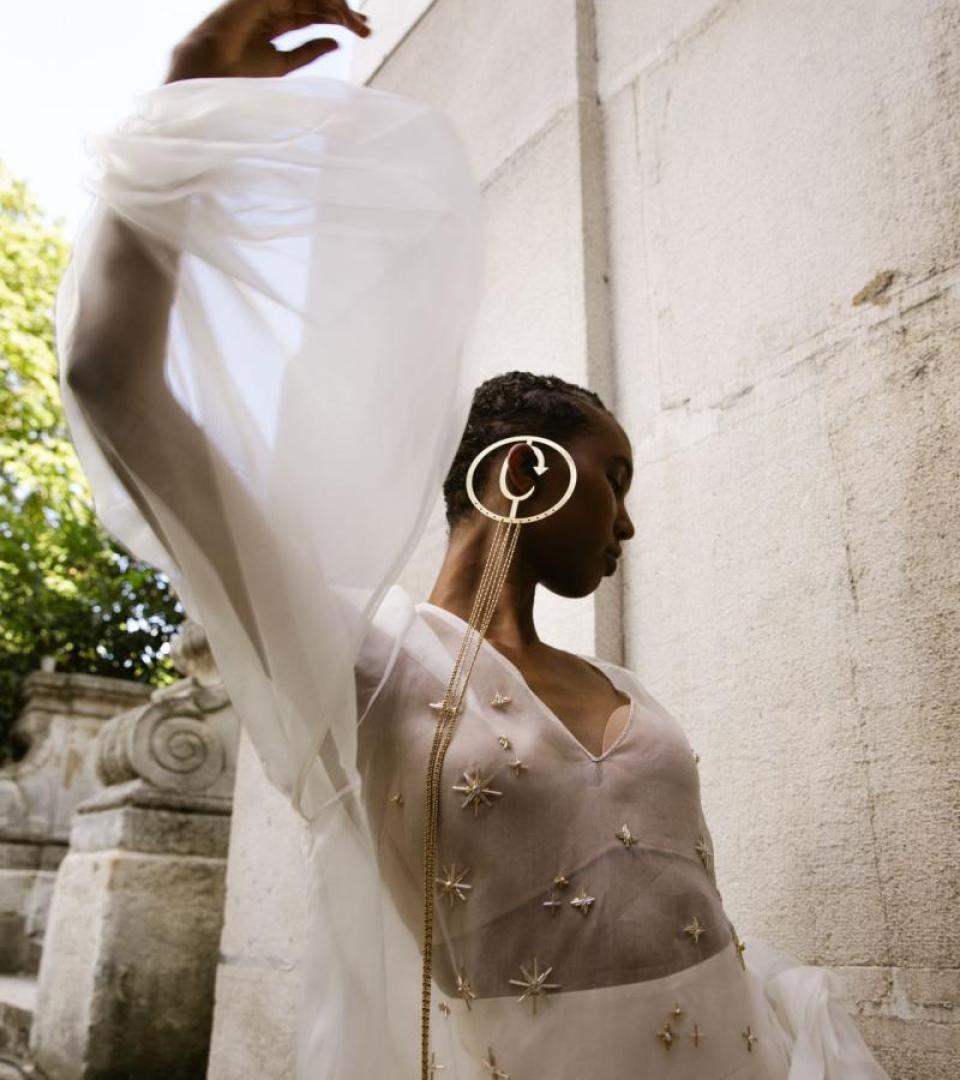The Institut Français de la Mode inaugurates Paris Fashion Week®
Paris Fashion Week® Menswear Fall-Winter 2024/2025 kicks off this Monday 18 June at 3.30pm at the Institut Français de la Mode. For several months now, the students of the Bachelor of Arts in Fashion Design have been conceiving and constructing their graduation collection, as the outcome of a highly challenging and visionary training programme.
Co-directed by the accomplished creative duo of Hervé Yvrenogeau and Thierry Rondenet, the Bachelor of Arts in Fashion Design has grown into a hive of multi-faceted talent that interacts and grows from each other. "It's a ship! The school welcomes around 1,200 students," explains Yvrenogeau as he strolls through the glass-walled classrooms, ideal for exchanges and collaboration. "It's not a fashion section in an art school, but a fashion school that includes all the professions in the sector," adds Rondenet. The Bachelor of Arts is a three-year programme conferring the highest level of academic recognition in France on the licence degree. "This recognition is important, firstly because it is the only private establishment in the sector to have obtained it, and secondly because it gives students access to grants", they point out. "Today, 25% of our students receive grants. We want to increase it to 30%." The social and cultural mix is striking, as the backgrounds are so varied. At the end of the programme, students are awarded a Fashion Designer diploma ("designer concepteur de mode" in French) and are qualified to join studios or build their own projects.
" For the first time, the students are facing themselves."
Of the 73 graduating students, 31 were selected to present their collections at Paris Fashion Week®. Six silhouettes each to express their creative vision. The selection took place on 24 May. "We organised a parade. It was also an opportunity for the students to present their work to their families", they explain. "It was Fashion Week style, with no explanation and no brief: it was up to the creations to convince." The students were selected by a jury made up of industry professionals, including "a photographer, three designers, a headhunter, and also the teachers who had followed them," says Yvrenogeau, "which is normal", adds Rondenet. "Not being selected for Fashion Week in no way affects their graduation," they insist. In the coming weeks, "all the students will take an oral exam to validate their diploma." This will be an opportunity to explain their collection in detail, "to justify their choices and their approach."
The students, plunged into the deep end, have to summon up all the knowledge they have acquired over the last three years. "They are facing themselves for the first time. Everything comes from them: the casting of the models, the fabrics, the themes." Of course, they are coached, "but it's up to them to make their own creative choices. The idea is to guide them towards coherent decisions, to question their research and inspirations," explain the co-directors, adding that "from the first year and for each project, the research phase is essential."
"The notion of sustainable development is embedded in their brains."
"Inspiration doesn't spring from their heads. It comes from what they experience, the exhibitions they see and the history they study. That's how you build a creative character," confides Yvrenogeau. The students, who are fully aware of the imperatives of the sector, had the opportunity this year to take part in a "zero waste" workshop, "an approach that is reflected in the fashion show," he continues, referring to the example of a student who came up with the idea of "making her pieces only from objects that she had been offered from the Le Bon Coin website." Other students are focusing on artificial intelligence as a way of getting to grips with this tool and exploring its limitations and contradictions. "A lot of the students are working on the concept of illusion, as a way of thinking about digital technology, which transforms reality," explains Rondenet. "Clothing has become dematerialised. For them, it's now completely integrated to buy a garment without touching the material." The co-directors listen fully to the students' perceptions, and the programme is honed to keep pace with an ever-changing sector.
"The most important recognition is that of peers, of creatives."
The IFM's latest Master of Arts fashion show was held on Monday 26 February 2024 and was attended by an exceptional audience, including the First Lady of France, the Minister of Culture, CEOs of major fashion houses, artistic directors and other influential figures in the ecosystem. This major political, institutional and professional recognition confirms the growing attention paid to emerging talent. "It adds value to the school. But the most important recognition comes from our peers, from creative people", they confide. "The creative scene is invited and comes."
"Our aim is for students to fulfil their potential in a field that suits them best."
Yvrenogeau and Rondenet have been working together for 30 years. They started out in the industry as designers - winners of the Grand Prix at the Hyères Festival in 1994 - and went on to work with some of the most famous names in the industry, including Maison Margiela, Balenciaga, Jean Paul Gaultier, Acne Studios and Louis Vuitton, among others. Before taking over the reins of the IFM's Bachelor of Arts programme, they lectured at La Cambre for 15 years, passing on their expertise to a cohort of talented students including Matthieu Blazy, Julien Dossena, Anthony Vaccarello, Marine Serre and Nicolas di Felice. "We used to teach everyone in the same way, so it's not really possible to know how their careers will develop. These are life trajectories," says Yvrenogeau. "There was a sense of creative commitment, that it was an integral part of their lives," adds Rondenet, who concludes, "We also trained a lot of people who joined the studios, who are invisible but whose work is remarkable. There is no hierarchy. The aim is for students to flourish in what suits them. It's a multifaceted sector."
Founded in 1927 to encourage talent and preserve craftsmanship, the École de la Chambre Syndicale de la Couture Parisienne merged with the Institut Français de la Mode in 2019, and the new campus - 9,000m2 - was inaugurated in 2021. "The aim of this school is to break down the image of a sector reserved for a very small number of people," stated Bruno Le Maire, the French Minister for the Economy and Finance at the time. Fully embracing the international scene and constantly evolving in line with the sector's innovations and turning points, the IFM is now the fashion school of the world's fashion capital.



